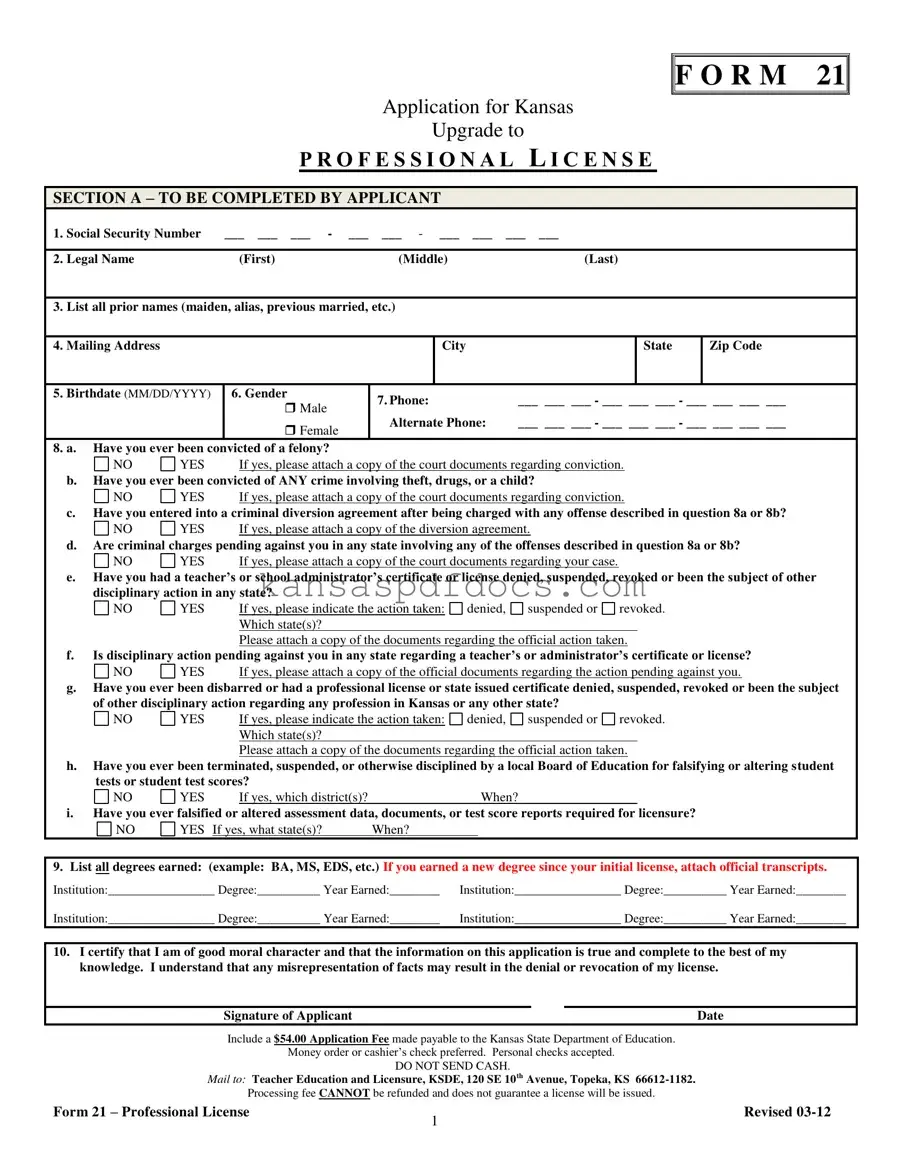Download 21 Kansas Form
The 21 Kansas form is an application used for individuals seeking to upgrade to a professional license in the state of Kansas. This form requires applicants to provide personal information, including their legal name, social security number, and details about their educational background. Additionally, it includes questions regarding any prior legal issues or disciplinary actions related to teaching or professional licenses.
Access This Form Now

Download 21 Kansas Form
Access This Form Now
Your form isn’t ready yet
Edit and finalize 21 Kansas online without printing.
Access This Form Now
or
Get PDF Form
